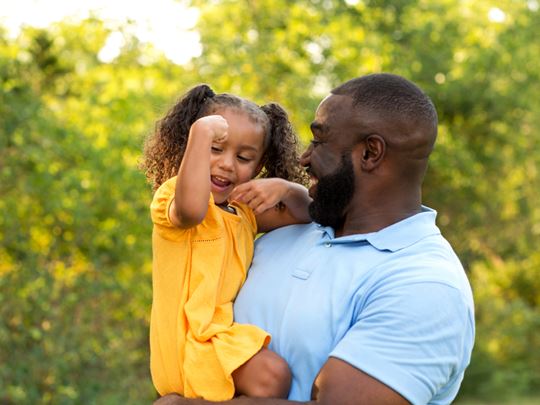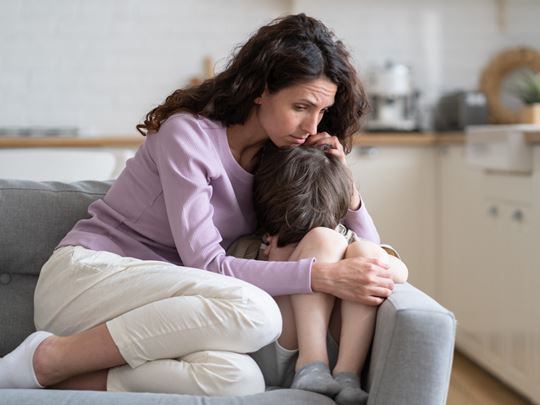Using the Pace Parenting approach at Christmas
Christmas can be an emotional season as we reflect on the ups and downs of the past 12 months and get ready to ring in the new year. But it can be particularly challenging for children in care.
From the loss and grief of not being with their families during this special season to being faced with situations that trigger painful memories, at Christmas, foster children need your patience, love, and support more than ever.
Join us as we explore fostering during the festive season in more detail, including how PACE therapeutic parenting can help you navigate heightened emotions during this time.

Challenges foster children face at Christmas
Christmas might be the most wonderful time of the year for you and many others, but children in your care could face the following challenges:
- Separated from their families: Missing their families or feeling guilty about enjoying the season without them.
- Other people’s joy: Hearing about the fun things other children are doing with their families and wondering why they can’t do that with theirs.
- Family time arrangements: If seeing their families around Christmas doesn’t go as they expected, for example, they don’t receive a gift, it could trigger feelings of rejection, hurt, and grief.
- Trauma: The festive atmosphere could trigger past traumatic experiences, and if they’re hypervigilant, they could find it overstimulating.
- Traditions: Receiving presents, sitting down for a big meal, and having visitors in the foster home are all lovely traditions, but if your foster child isn’t used to them, they might struggle to know how to respond and could feel overwhelmed.
These are just some examples of how the festive season could impact the child in your care. Every child is different, and applying therapeutic parenting with PACE will not only help you understand which parts of Christmas they find difficult but also give you the tools to support them throughout the season and beyond.
What is pace parenting?
The PACE method of parenting is a therapeutic way of helping children living with trauma build safe and trusting relationships that help them heal.
PACE has four pillars:
- Playfulness: This is about nurturing your connection with light-hearted moments of joy, humour and silliness, such as singing a silly song together or making up a dance.
- Acceptance: This pillar means separating a child from their behaviour and validating their feelings, so they feel accepted for who they are. It’s about letting them know that, although you may not like something they have done, your love for them is unconditional.
- Curiosity: Means taking a step back to consider why your foster child is behaving in a certain way. It’s about reflecting on whether something has triggered them, such as a situation, person, or sensory input.
- Empathy: This pillar means seeing things through your child’s eyes and showing them that you understand where they’re coming from while working through their thoughts and feelings together.
Applying the PACE model of parenting at Christmas
Here are some tips for applying PACE during the Christmas period to help your foster child feel safe, comfortable, and understood when emotions could be running high.

Playfulness
From Christmas shopping and decorating the home to nativity shows and visiting extended family, the festive season is a busy time of year for most families. The disruption in routine may cause anxiety in foster children, so finding appropriate moments for playful connection could help put them at ease.
For example, you could do some festive baking together while singing a Christmas song in a silly voice or add a festive touch to your usual routine by reading them a Christmas story each night in the run-up to the big day.
If they’d prefer to forget about Christmas for a little while, you could have a cosy evening in with their favourite blanket, movie, and snacks.
Acceptance
Often, if a child can’t verbalise their feelings, they’ll communicate them through their behaviour instead. As we’ve already mentioned, your foster child may be feeling an array of emotions during the festive period that they could find difficult putting into words.
If you notice your foster child’s behaviour change as Christmas approaches, help them find healthy ways to cope. For example, agree on a code word they can use if they’re feeling overwhelmed, so they can leave the situation and go to their safe space before it becomes too hard for them to manage.
If they do raise their voice or do something inappropriate when they’ve found it difficult to manage their emotions, show them compassion and understanding. When they’ve had time to regulate, you can then explain to them why their behaviour wasn’t okay in a gentle and reassuring voice that lets them know it won’t impact your relationship with them.
Curiosity
Before the festivities begin, discuss upcoming celebrations with your foster child to understand how they feel about them. It might be easier to approach the conversation while you’re doing something else together, such as cooking, or if you’re watching TV and the infamous Coca-Cola advert appears.
If they don’t feel comfortable opening up, let them know that the door is always open if they want to chat, and reassure them that you’ll do everything you can to make them feel safe and happy during the festive season.
You could also let them know what you have planned before giving them time to reflect on whether they’d like to make any changes. And don’t forget to pay attention to their body language and behaviour, as this will often tell you how they truly feel.
Empathy
Whether your foster child has been part of your family for a few months or a few years, Christmas can still feel like a lonely time for children in care, especially if they see everyone around them having fun, but they miss their family and friends.
Your compassion and empathy, along with the other pillars of PACE we’ve already mentioned, can go a long way in supporting your foster child to feel less alone and enjoy the festive season in a way that meets their needs.
Caring for yourself at Christmas
As a foster parent, it can be easy to forget about your own needs when you’re so dedicated to the children in your care. But if you continuously neglect your own emotional and physical well-being, it can lead to burnout.
So whether it’s a hot bath with a cinnamon-scented candle or a walk through the park on a frosty morning, make sure you allocate time to yourself during the busy festive season.
At Fostering People, we’re always on hand to support you. From our foster parent training and 24/7 helpline to our support groups, where you’ll connect with other foster parents, we’ll be by your side, supporting children to heal from their experiences and see Christmas in a new light.

Start your fostering journey today
If you’d like to learn more about therapeutic foster care, call us on 0800 077 8159 or complete an enquiry form and we’ll call you.
Our team will take you through everything you need to know about becoming a foster parent, so you feel ready to make a real difference in the lives of vulnerable children and young people.
































